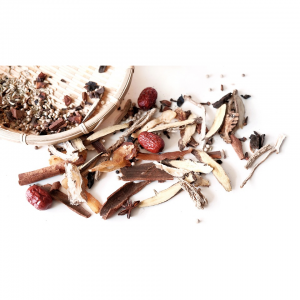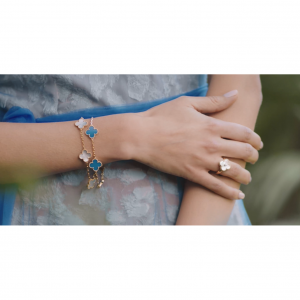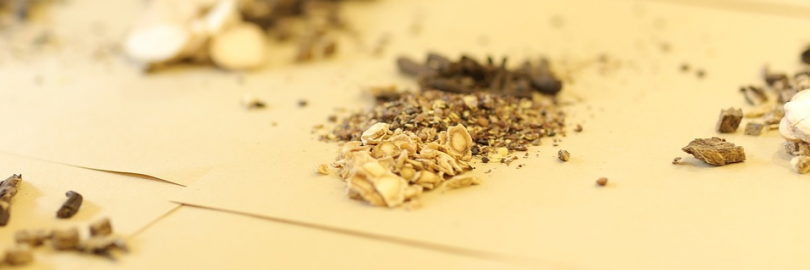
Ultimate Guide to Traditional Chinese Medicine: Herbs List, Benefits, Uses & Tips for Drinking
Traditional Chinese medicine is a healing approach that originated in China thousands of years ago. The underlying principles of TCM are very different from traditional Western notions about health, illness and the workings of the body. Often referred to as "TCM," practitioners use various mind and body practices (such as acupuncture and tai chi) as well as herbal products to prevent or treat health problems. So what does traditional Chinese medicine really treat? Is traditional Chinese medicine effective? Is traditional Chinese medicine safe? How to use Chinese herbal medicine? Where to buy Chinese herbal medicine? Check out this ultimate guide to traditional Chinese medicine: herbs list, benefits, uses & tips for drinking, and you will find the answer!
What is Traditional Chinese Medicine?
TCM is an ancient health system that dates back thousands of years and is still very prevalent in China today. TCM doctor believes illnesses are caused by an imbalance of yin and yang and disrupted the flow of Qi in the body.

Rooted in a philosophy known as Taoism, traditional Chinese medicine is based on the theory that all of the body's organs mutually support each other. Therefore, in order to be healthy, an individual's organs (and their functions) must be in balance. This balance is attained, in part, by harmonizing yin and yang, two opposing but complementary energies thought to affect all life.
Another theory in traditional Chinese medicine is that vital energy (called "qi" or "chi") flows throughout the body via certain pathways (or "meridians"). According to this theory, disease and other emotional, mental, and physical health problems develop when the flow of qi is blocked, weak, or excessive. Restoring the flow of qi is considered essential to balancing the yin and yang and, in turn, achieving wellness. So TCM doesn’t treat the disease, instead, it treats the body.
Health Benefits of Traditional Chinese Medicine
Although standard treatment in modern medicine is based on the diagnosis, in TCM, the treatment would depend on diagnosing the imbalance. For example, a person with insomnia may have difficulty sleeping because of an imbalance such as a kidney yin deficiency, liver yang rising, or blood deficiency.
Some of the health problems most commonly treated with Traditional Chinese Medicine therapies include:
Chronic pain
Arthritis (e.g. rheumatoid arthritis)
Fatigue
Infertility
Obesity
Insomnia
Liver disease
Headaches
Indigestion
Hormonal imbalances
High blood pressure
Menopause symptoms
Cancer recovery or chemotherapy
Parkinson's disease
Eczema, hives, acne, psoriasis, and other skin conditions
Organs that are especially focused on during TCM treatments include the kidneys, heart, spleen, liver, lung, gallbladder, small intestine, and large intestine. Depending on the specific type, the benefits of TCM therapies range considerably.
Types Of Traditional Chinese Medicine
There are seven main types of Chinese medicine. They range from physical movement practices to ingesting herbs and supplements.
Acupuncture
Acupuncture is a technique in which practitioners stimulate specific points on the body, usually by inserting thin needles through the skin. Studies suggest that acupuncture stimulates the release of the body’s natural painkillers and affects areas in the brain involved in processing pain. So, acupuncture may help ease types of pain that are often chronic, such as low-back pain, neck pain, osteoarthritis/knee pain, and carpal tunnel syndrome. It also may help reduce the frequency of tension headaches and prevent migraine headaches.
Moxibustion
Moxibustion is a practice that involves burning an herb near the skin to warm the area over acupuncture points. The burning can invigorate the blood, which historically has been to cure menstrual pain and improve the function of the kidneys.
Tui na
Tui na is a type of bodywork that combines massage and acupressure. It helps to treat chronic pain and musculoskeletal conditions. The massage can also include herbal compresses, heat, and ointments to fully heal the body. Along with some acupressure and traditional massage techniques, the tui na masseuse also helps guide the client’s body into various healing poses.
Tai chi
Tai chi is an exercise with slow movements and focuses on the breath. Research findings suggest that practicing tai chi may improve balance and stability in older people and those with Parkinson’s disease, reduce pain from knee osteoarthritis, help people cope with fibromyalgia and back pain, and promote quality of life and improve mood in people with heart failure.
Cupping
Cupping is an intense form of Chinese massage that uses glass or plastic cups and the power of suction. During the process, cotton is set on fire and placed inside the cups. The oxygen is sucked out and then the air in the cup cools creating a vacuum of pressure. Cupping does wonders to work out sore muscles. In addition, it has been used for skin issues like hives and acne, helping boost immunity, and even lowering cholesterol.
Meditation
Meditation is a way to sit quietly and calm your mind. The benefits of meditation are numerous (and backed by science): it reduces stress, enhances self-awareness, and it can even help you lengthen your attention span.
Herbs
The herbs come from a variety of plant roots, leaves, and seeds. You can choose which way you prefer to ingest these herbs. They come in dozens of forms. You can get them in pill-form, teas, powders, and liquid extracts. Many research showed that Chinese herbal products can be used to treat stroke, heart disease, mental disorders, and respiratory diseases (such as bronchitis and the common cold) etc.
A List of Chinese Herbs
In Traditional Chinese Medicine, there are not roughly 13,000 medicinals used in China and over 100,000 medicinal prescriptions recorded in the ancient literature.Plant elements and extracts are the most common elements used in medicines.In the classic Handbook of Traditional Drugs from 1941, 517 drugs were listed - 442 were plant parts, 45 were animal parts, and 30 were minerals. Herbs commonly used in traditional Chinese medicine include:
Ginseng (ren sheng)

Hailed as the King of Chinese herbs, ginseng is greatly prized. There are a few types such as white ginseng, red ginseng, American ginseng, and Korean ginseng. This Chinese herb is affiliated with the spleen, heart, and lung meridians. It is prescribed for a variety of ailments, including loss of appetite, restlessness, weak pulse, and impotence.
Cinnamon (ròuguì)

Cinnamon is considered a warm medicinal herb in Traditional Chinese Medicine. It can warm the body, invigorate the circulation and harmonize the energy of the upper and lower body. Cinnamon is often used to help with back pain, knee weakness, and other ailments typically associated with the kidneys.
Ginger (shēngjiāng)

This spicy rhizome is said to benefit digestion, neutralize poisons in food, ventilate the lungs, and warm circulation to the limbs. Ginger can also help with things like nausea and might even act as a boost to your immune system. Some studies even suggest that this root can help curb cancer cell growth, help lower blood sugar levels, and even help alleviate nausea and morning sickness.
Aged mandarin peel (chénpí)

Mandarin tangerine peels, after being sundried, are often used as a warming agent to help the functions of the spleen and stomach and balancing qi. Like the citrus fruit itself, the mandarin peel is also rich in vitamin C, and antioxidants are also found in higher concentrations in the peel, which means more fighting off of free radicals.
Astragalus root (huang qi)

Astragalus is a root with a mild licorice-like taste. Commonly combined with other herbs, astragalus has been promoted as a dietary supplement for many conditions, including upper respiratory infections, allergic rhinitis (hay fever), asthma, chronic fatigue syndrome, and chronic kidney disease, among others. It’s also promoted to strengthen and regulate the immune system.
Chinese Angelica Root (dang gui)

The Chinese angelica root has a very important place in women's health. It is highly valued for the treatment of a host of women's illnesses. It is supposed to strengthen the blood, nourish the female reproductive organs, regulate menstruation, and alleviate period pains.
Goji berries (gǒuqǐ zi)

Also known as wolfberries, goji berries have been used as an herbal remedy for over 3,000 years, with their first recorded use as such showing up in the pivotal The Classic of Herbal Medicine. They are thought to be anti-aging because they can benefit the kidneys and to nourish jing, or kidney essence, which underpins human vitality. These vibrant and lightly floral berries are also rich in vitamin C, antioxidants, fiber, and vitamin A, and generally come in dried form, used in teas and several dishes to improve nutrition and eyesight.
Red dates (hóngzǎo)

Also known as Jujube, red dates are widely considered as the "living vitamin pill" by the Chinese. It contains Vitamin B, C, E, P, phosphorus, calcium, iron, and more. Deeply red jujube dates have been used in TCM recipes for centuries, they are thought to promote blood flow, calm the mind, and soothe the nerves, and are often used to treat insomnia. They are also can help lift the mood and soothe anxiety.
How To Use Chinese Herbal Medicine?
Rather than prescribing specific herbs, practitioners of traditional Chinese medicine typically combine a number of different herbs in formulas selected depending on the patient's individual needs. These formulas may be given as teas, capsules, tinctures, or powders.
Tips for Drinking Traditional Chinese Herb
1. Herbs can act on the body as powerfully as pharmaceutical drugs and should be treated with the same caution and respect.
2. Some herbs can be toxic in high doses, while others can cause allergic reactions. Make sure your practitioner is fully qualified.
3. Never abandon your regular medication or alter the dose without the knowledge and approval of your doctor.
4. If you have a health condition, talk with your health care provider before using TCM herbal products.
5. If you are pregnant or nursing, or are thinking of using TCM to treat a child, be especially sure to consult your (or the child’s) health care provider.
Is Traditional Chinese Medicine Safe?
While traditional Chinese medicine haven’t been studied or approved by the FDA, or other Western pharmaceutical groups, they have been used in Eastern cultures for thousands of years. Traditional Chinese medicine is genuinely very safe, if you find someone certified by the Accreditation Committee for Acupuncture and Oriental Medicine (ACAOM). This is especially true of acupuncture, tai chi, cupping, and moxibustion. Herbs can have side effects or impact other medicine you’re taking. So you need to check with your doctor first.
Where to Buy Chinese Herbal Medicine?
Buying Chinese herbal medicine now seems easier than ever. Today, you can go online and find many online retailers specializing in herbal products and Traditional Chinese Medicine. You can also visit traditional stores where they can buy these products in-person.
If you want buy Chinese herbal medicine online, don't forget to sign up at Extrabux first!(What is Extrabux) , then book through Yamibuy, LuckyVitamin, so you can enjoy up to 7% cashback on your order from Extrabux! Sign-Up Bonus: Free to join it & get $20 welcome bonus!
Founded in 2006, Extrabux is one of the top three cashback websites in the US. It has more than 200,000 users worldwide and has cooperated with 10,000+ Chinese and foreign e-commerce websites, Whether you are buying luxury goods, electronic products, clothing, shoes, bags, maternal and child products, health & beauty products, or booking air tickets and hotels, you can get up to 30% cashback!
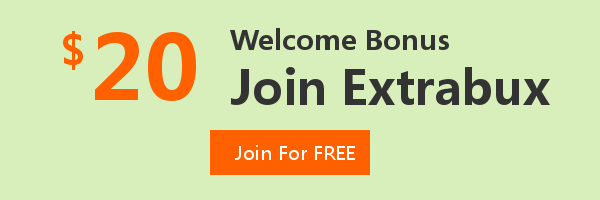
Extrabux is an international cashback shopping site, offering up to 30% cashback from 10,000+ Stores!
iHerb, Walgreens, Gousto, Orgain, Puritan's Pride, Pharmaca, Texas Superfood, Lloyds Pharmacy, Rite Aid, Dr. Schulze's, Vitacost, Myprotein AU, Vitabiotics, etc.
Join to get $20 welcome bonus now! (How does Welcome Bonus work?)
Recommendation
-

Is Turkish Airlines Good for International Flights?
-

10 Best & Stylish Winter Coats for Women on NET-A-PORTER in 2025
-
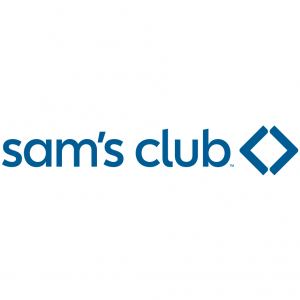
Top 12 Items That Are Always Cheaper at Sam's Club!
-

Top & Best 12 Sneaker Apps/Websites for Raffles, Releases & Restocks in 2025
-

7 Best Gift Card Exchange Sites - Buy, Sell and Trade Discount Gift Card Safely and Instanly!

